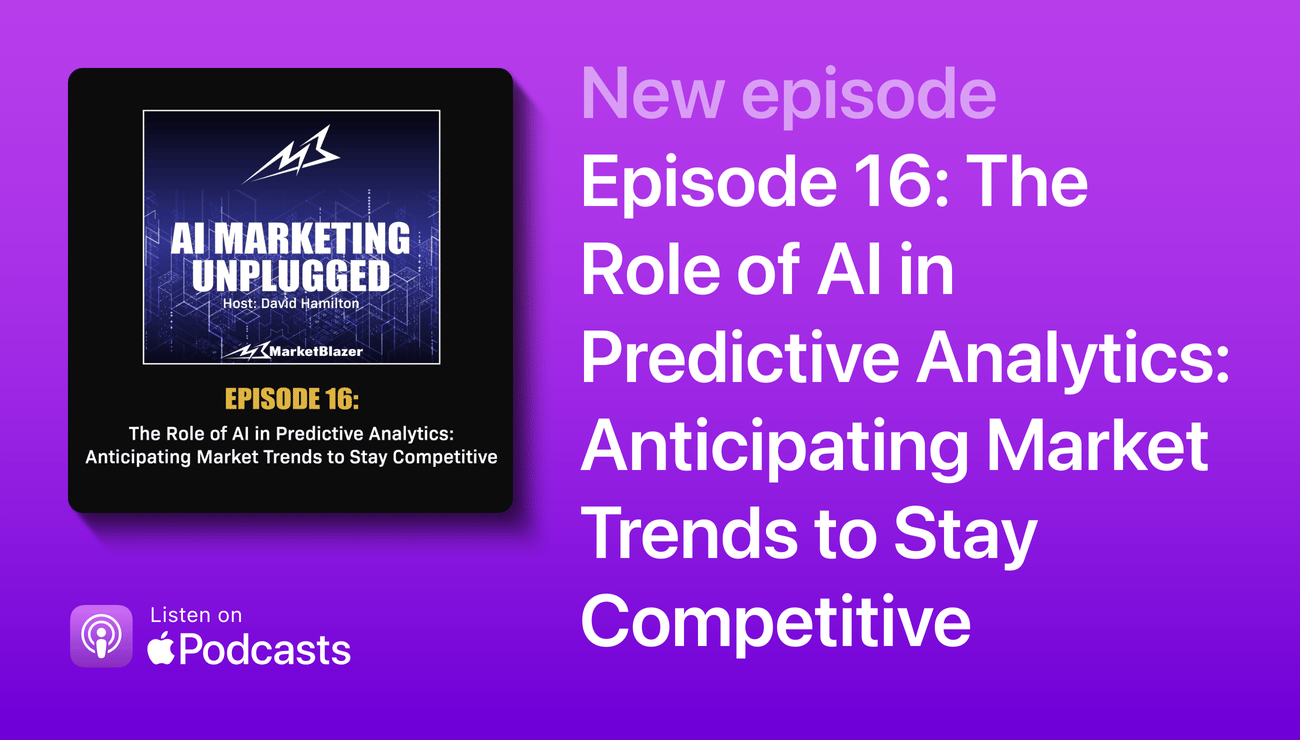- AI Marketing Wire
- Posts
- Overconfident AI, CMO Playbooks, and Amazon’s Messy Ad Magic
Overconfident AI, CMO Playbooks, and Amazon’s Messy Ad Magic
AI Marketing Wire Issue 16

AI Marketing Moves to Watch

Each week, we track how AI is reshaping marketing, from customer experience to campaign performance. In this issue: why large language models might be misleading your customers, what 8 top CMOs say about brand-building in the age of automation, the best AI tools for marketers in 2025, how Google treats AI content, and why Amazon’s chaotic full-funnel ad model is brilliant.
🛠️ Tools & Platforms
Top AI Marketing Tools Ranked by Sprout Social
Sprout Social has released an in-depth guide to the top AI marketing tools across various categories, including content creation, social media, customer service, SEO, and analytics. Featured platforms include Jasper, Copy.ai, ChatGPT, Grammarly, Surfer SEO, and Sprout’s own AI tools for social media scheduling and listening. The article breaks down each tool’s key use cases, pricing, and ideal user base—whether you're a solopreneur or part of a large enterprise.
💡 Why It Matters:
With numerous tools available, marketers can often feel overwhelmed. This guide simplifies the landscape and helps businesses choose AI software that aligns with their goals, whether that’s boosting engagement, automating routine tasks, or scaling content. AI is no longer optional; it’s foundational for efficient marketing in 2025.
📣 Brand Strategy
8 CMOs on How AI Is Changing Brand Marketing
The World Federation of Advertisers (WFA) gathered insights from eight global CMOs on how AI is reshaping marketing. Common themes included:
Greater personalization at scale
Accelerated testing and learning
Risk of homogenized creativity
The growing need for human oversight
Pressure to retrain teams
Leaders from brands like L'Oréal, Diageo, and Mastercard emphasized AI’s role in improving efficiency and insight, but stressed that emotional resonance and human brand guardianship are more vital than ever.
💡 Why It Matters:
As AI tools become increasingly central to campaign development, brand marketers must strike a balance between automation and originality. CMOs should invest in upskilling creative teams and developing brand-specific AI guardrails to ensure consistency and long-term value.
🧠 AI + Psychology
Large Language Models Are Overconfident—and That’s a Problem
A new study reveals that AI large language models (LLMs) like GPT-4 are prone to overestimating their accuracy, especially in high-stakes scenarios. Researchers found that as these models are trained to give more confident responses, they tend to misjudge their own correctness, delivering incorrect answers with excessive certainty. This can lead to serious issues in fields like law, healthcare, and finance, where users may take AI-generated content at face value.
💡 Why It Matters:
For marketers using AI for content creation, chatbots, or customer service, this overconfidence bias can erode trust in their products or services. Businesses relying on LLMs should implement safeguards, such as human review, clear disclaimers, or prompt engineering techniques, to reduce hallucination risks.
🔍 SEO & Content
Google Clarifies Stance on AI-Generated Content
Google Search has officially stated that AI-generated content is not penalized by default. Instead, Google evaluates all content, human or machine-generated, based on E-E-A-T (Experience, Expertise, Authoritativeness, and Trustworthiness), as well as overall content quality. The post clarifies that automatically generated content that is helpful, original, and written for people can perform well in search results.
💡 Why It Matters:
For marketers using AI to scale content, this is a green light, but with conditions. Success depends not on how content is created, but why and for whom. High-quality AI content that informs, guides, or solves problems will rank; low-value “SEO spam” won’t. Focus on human intent and factual accuracy, not just volume.
🛒 E-commerce & Ads
Amazon’s Full-Funnel Ad Strategy Is Messy, But It’s Working
Amazon is reshaping retail advertising with a full-funnel ad strategy that tracks shoppers across the entire buying journey, from discovery to purchase to repeat engagement. By merging retail data, streaming insights (via Prime Video), and AI-powered ad tech, Amazon offers brands unprecedented targeting and attribution. While execution is complex and integration remains a challenge, the payoff is higher ROI and deeper customer insights.
💡 Why It Matters:
Amazon’s approach demonstrates that combining AI and commerce data yields significant ad power. For marketers, it’s a call to build campaigns that don’t just chase clicks, but follow the customer through every step. As retail media networks continue to grow, expect more platforms to adopt this complex-but-powerful model.
📬 Stay Connected
Thanks for reading AI Marketing Wire—where smart marketers stay ahead of the algorithm.
🚀 If you found this edition insightful, consider sharing it with a friend or colleague who is AI-curious.
🎧 Explore More on the AI Marketing Unplugged Podcast
Until next week, stay curious, be creative, and try AI.
The AI Marketing Wire Team
🧠 + ❤️ = 📈
#AIMarketing #DigitalAds #AIContent #MarketingTools #RetailMedia #CMOInsights #SEO #GoogleSearch #EcommerceStrategy #GenerativeAI



